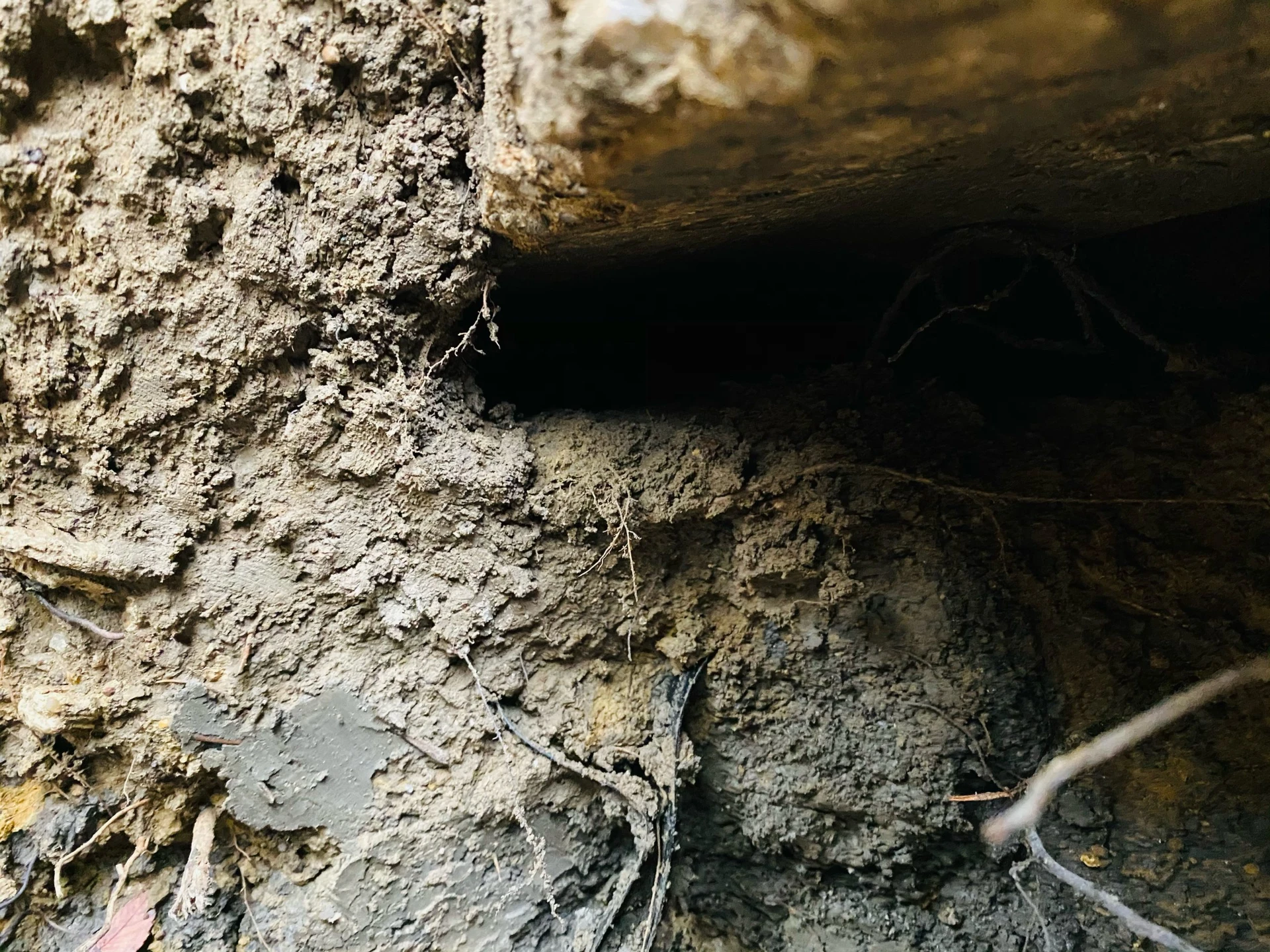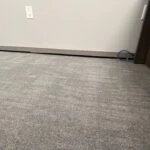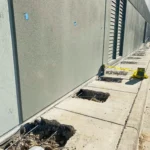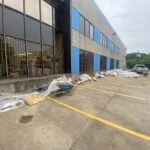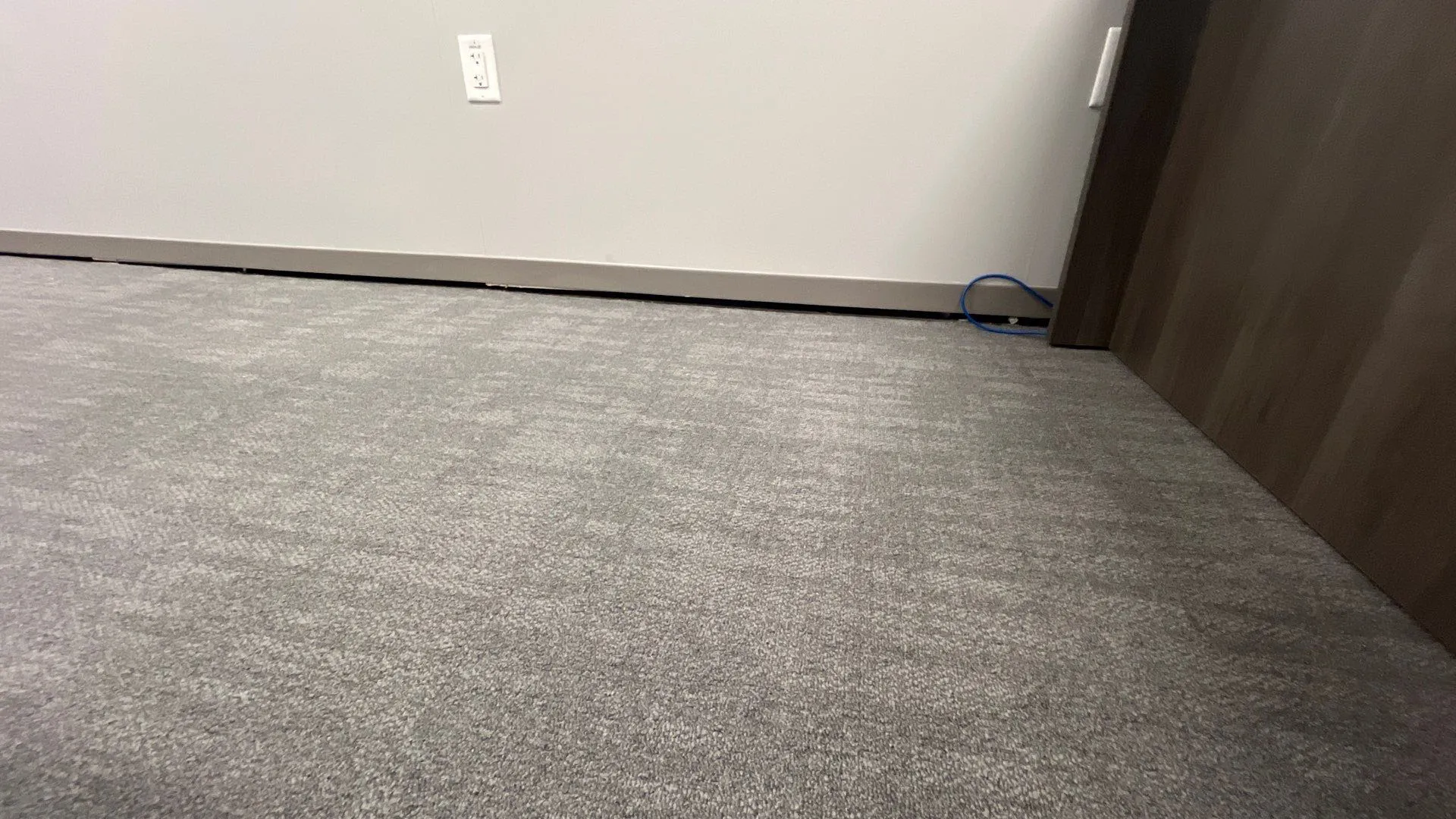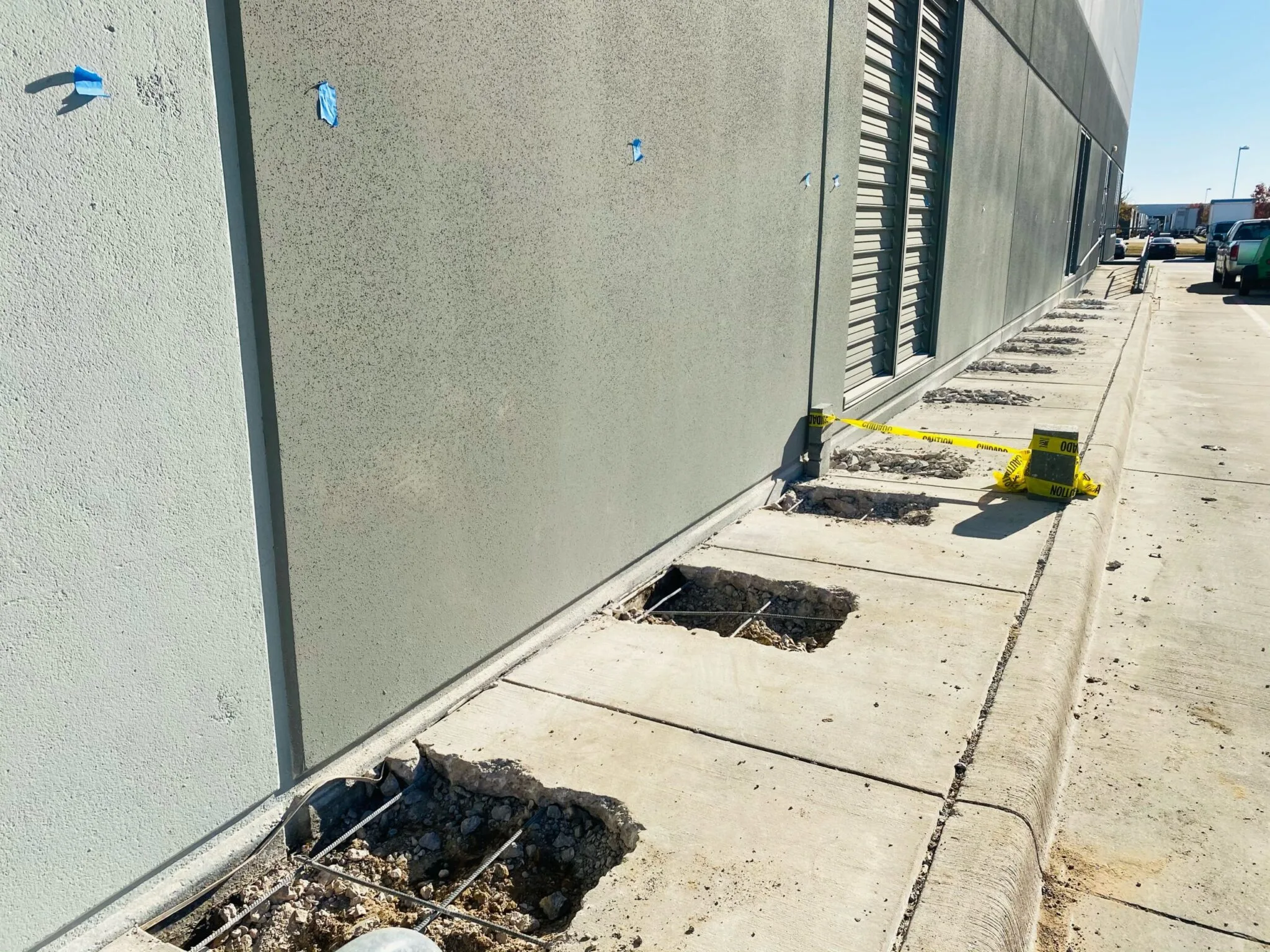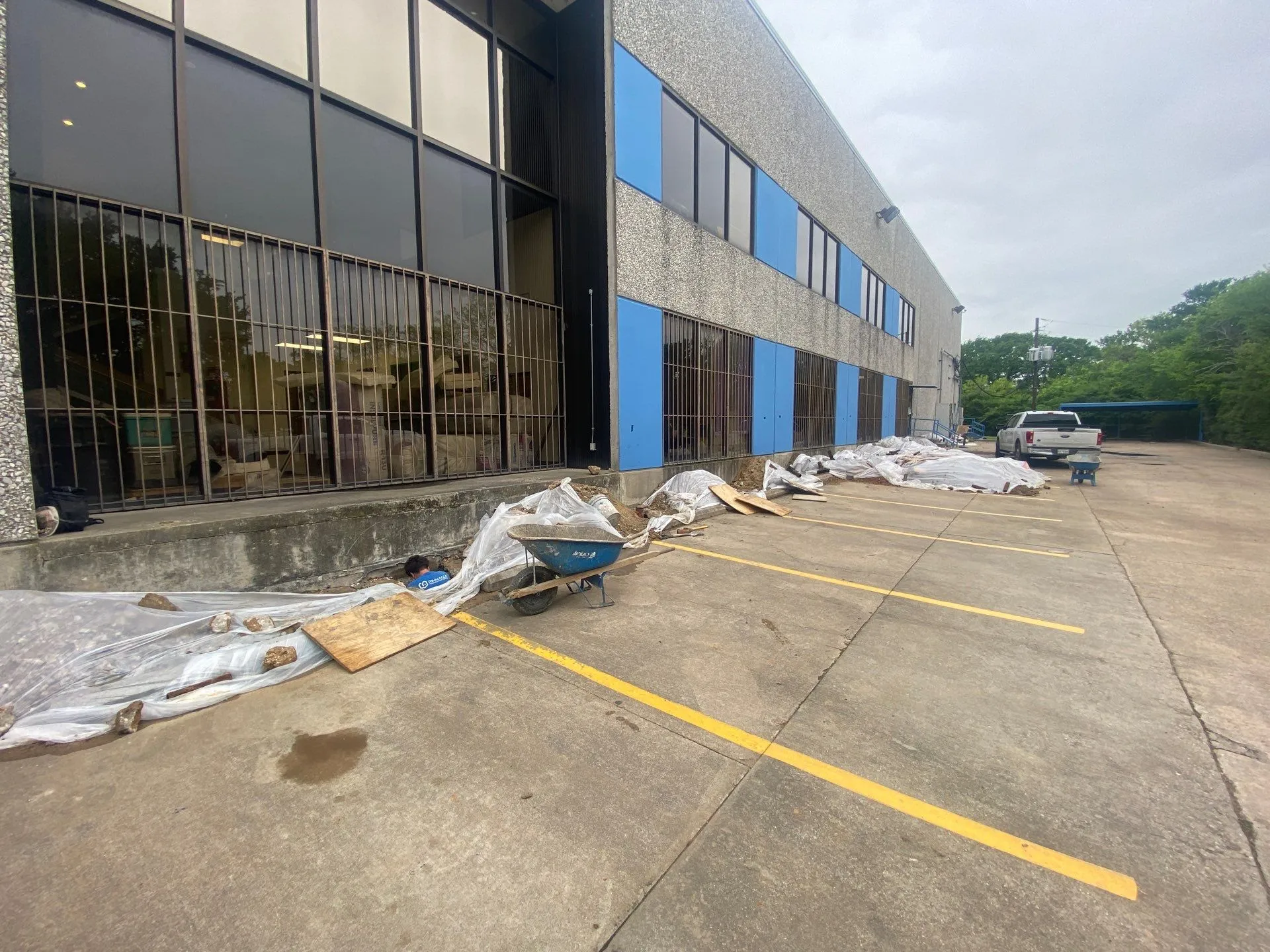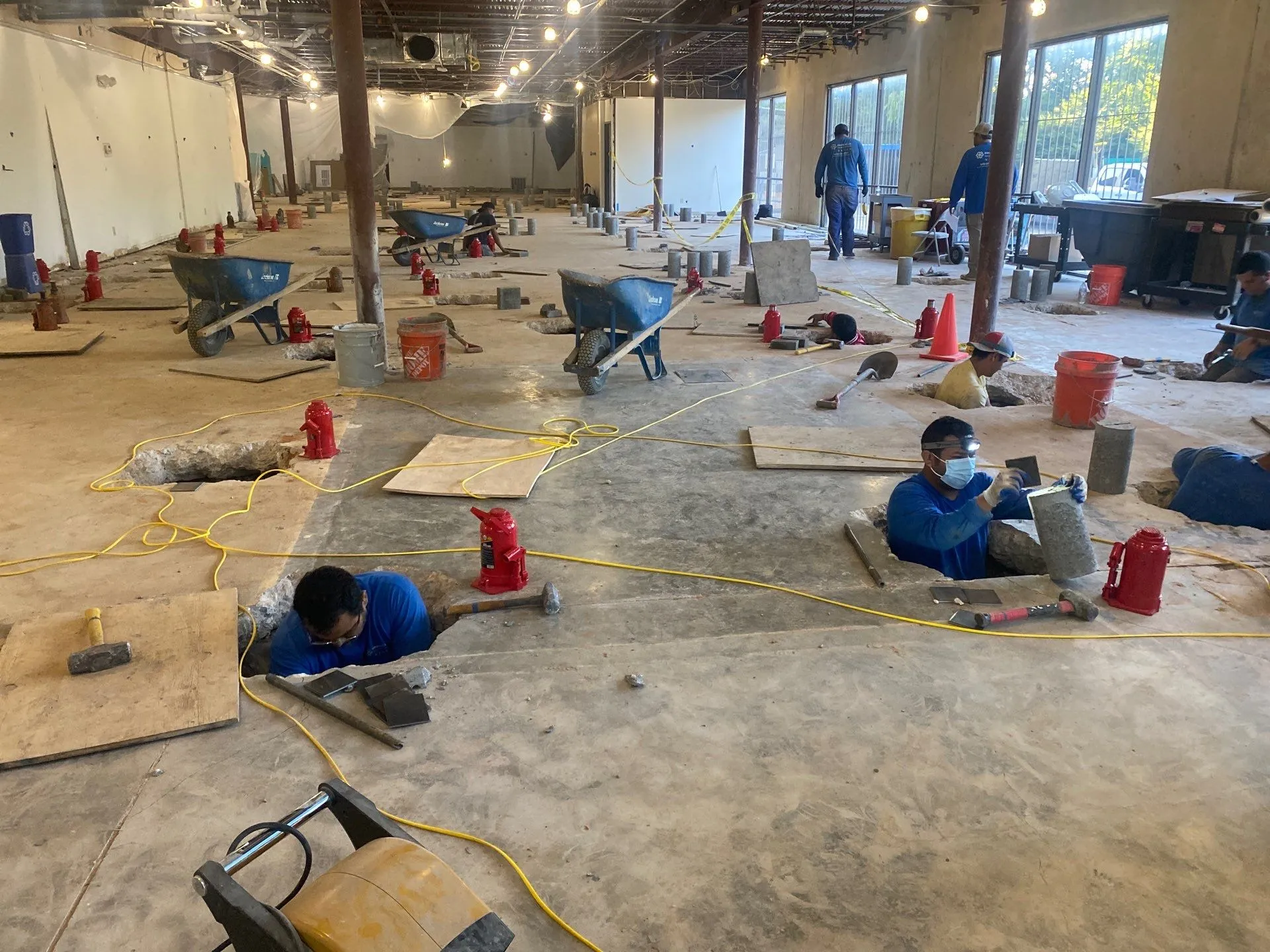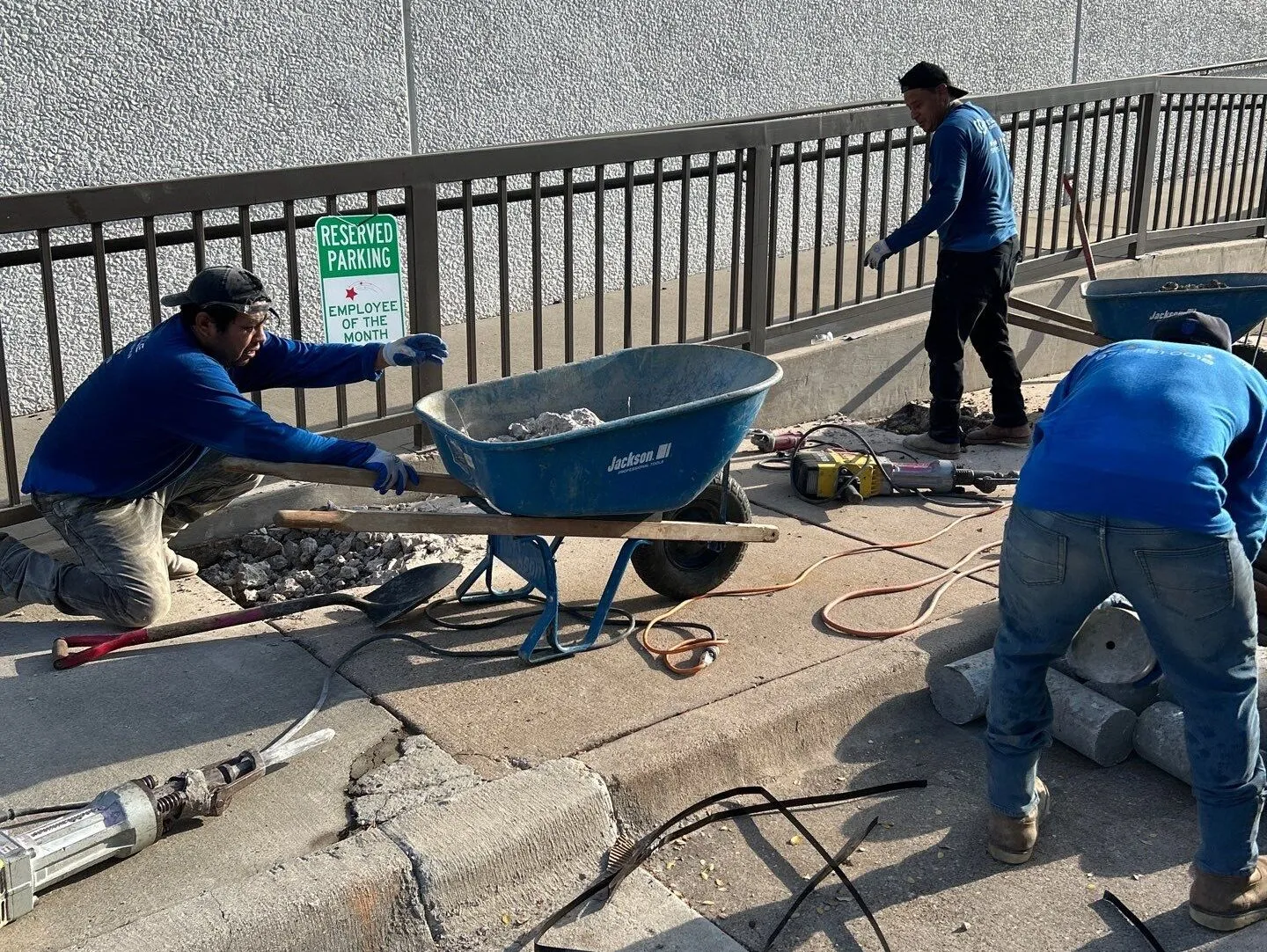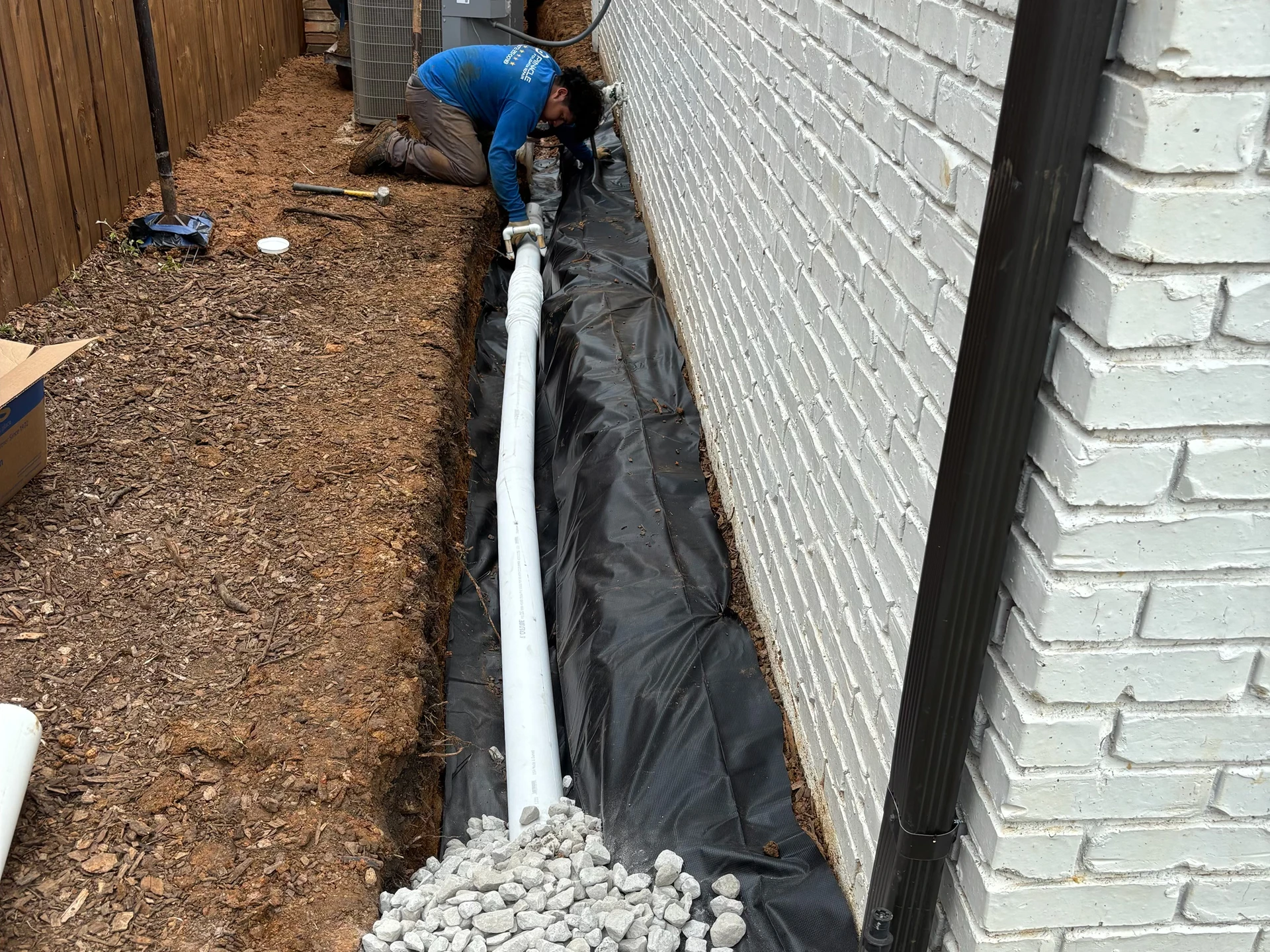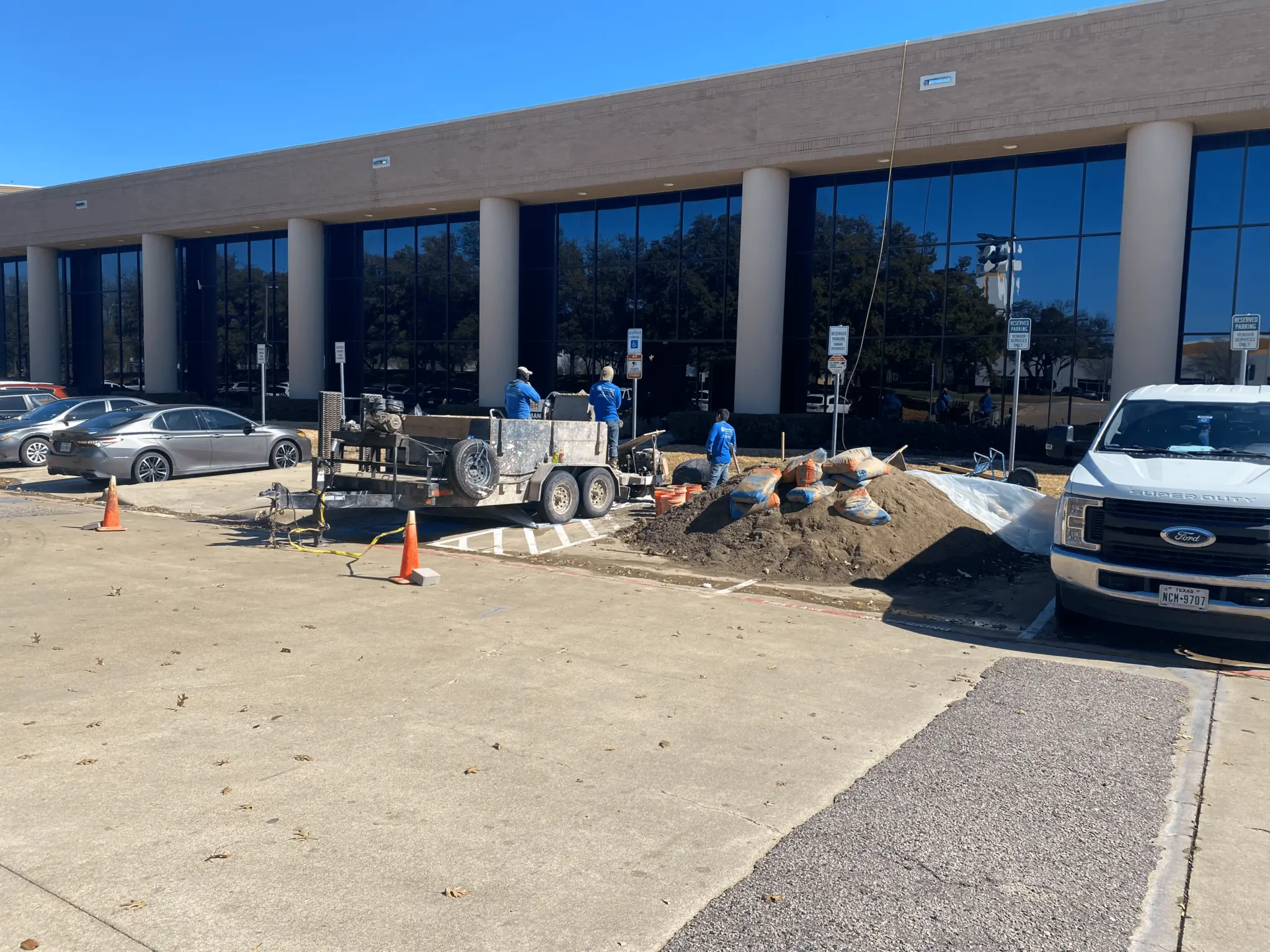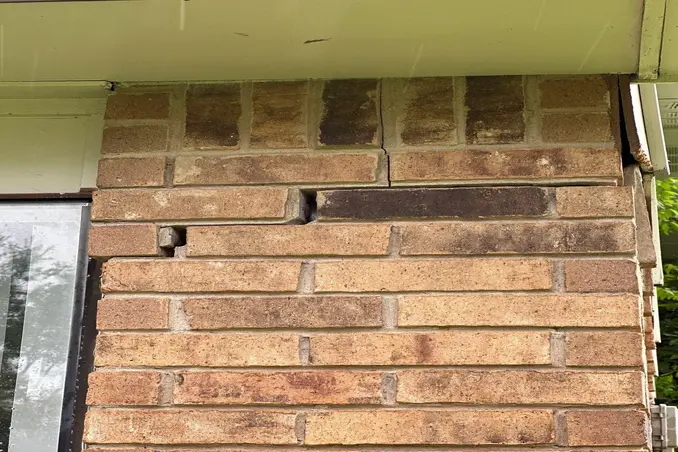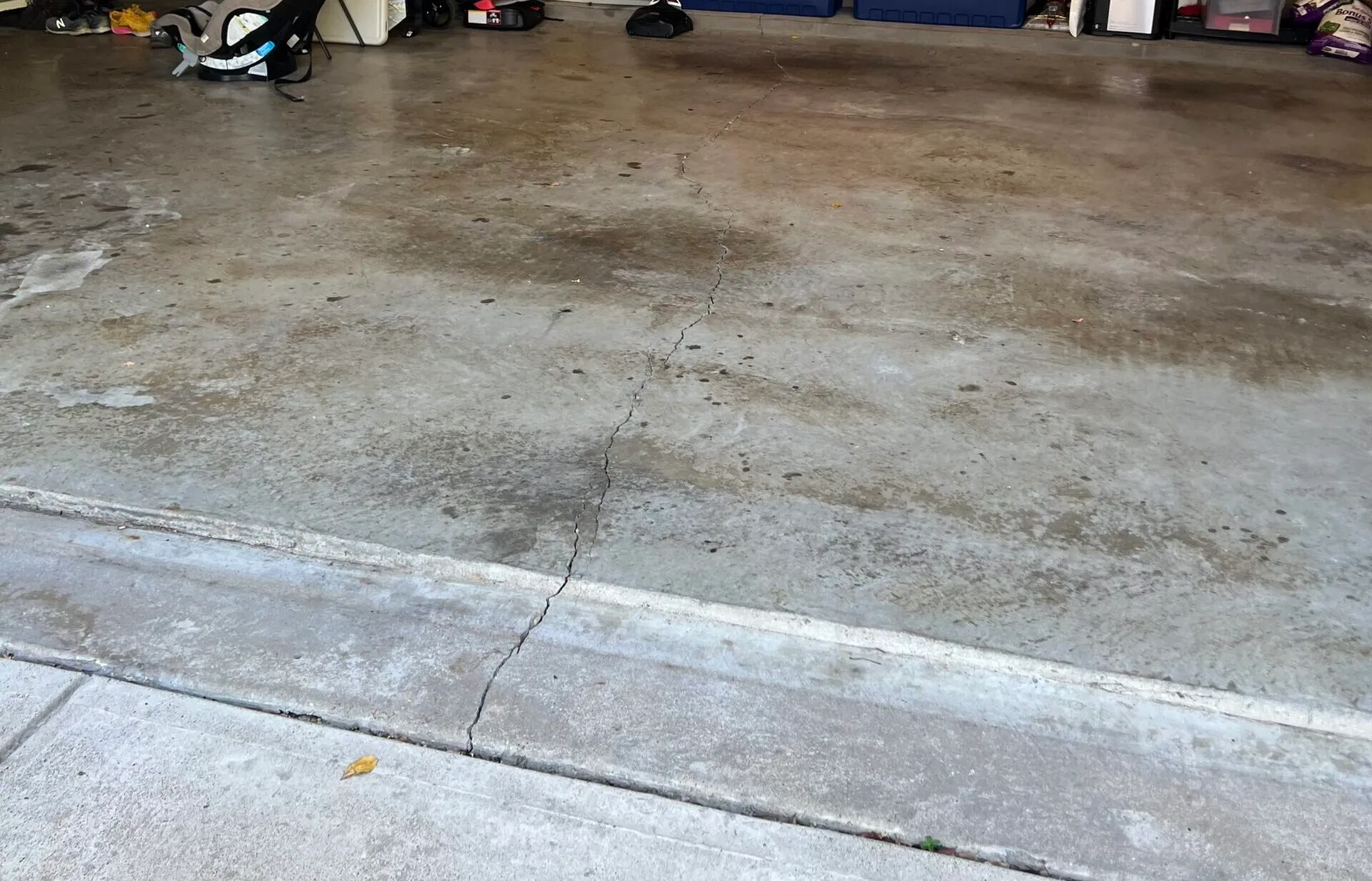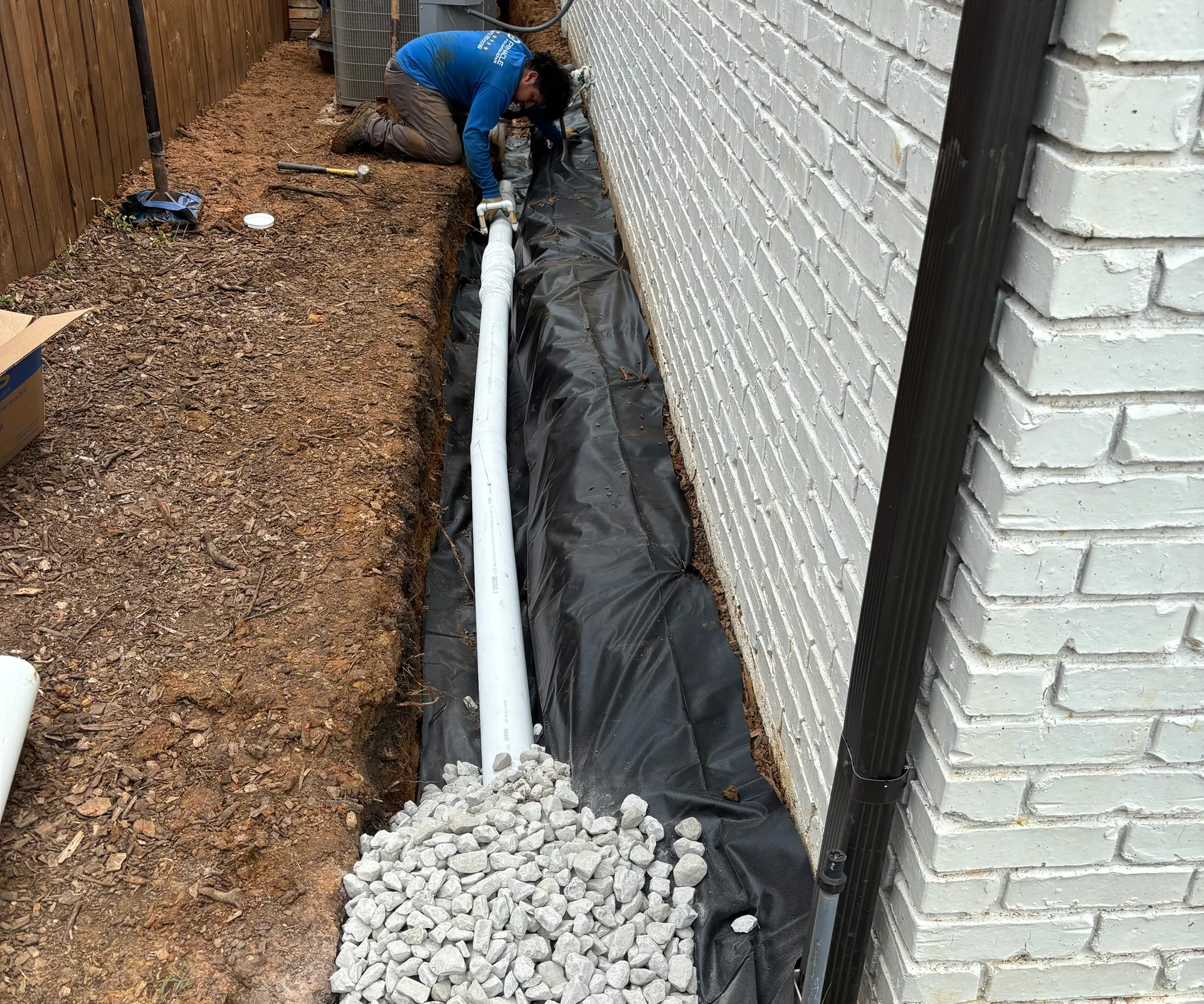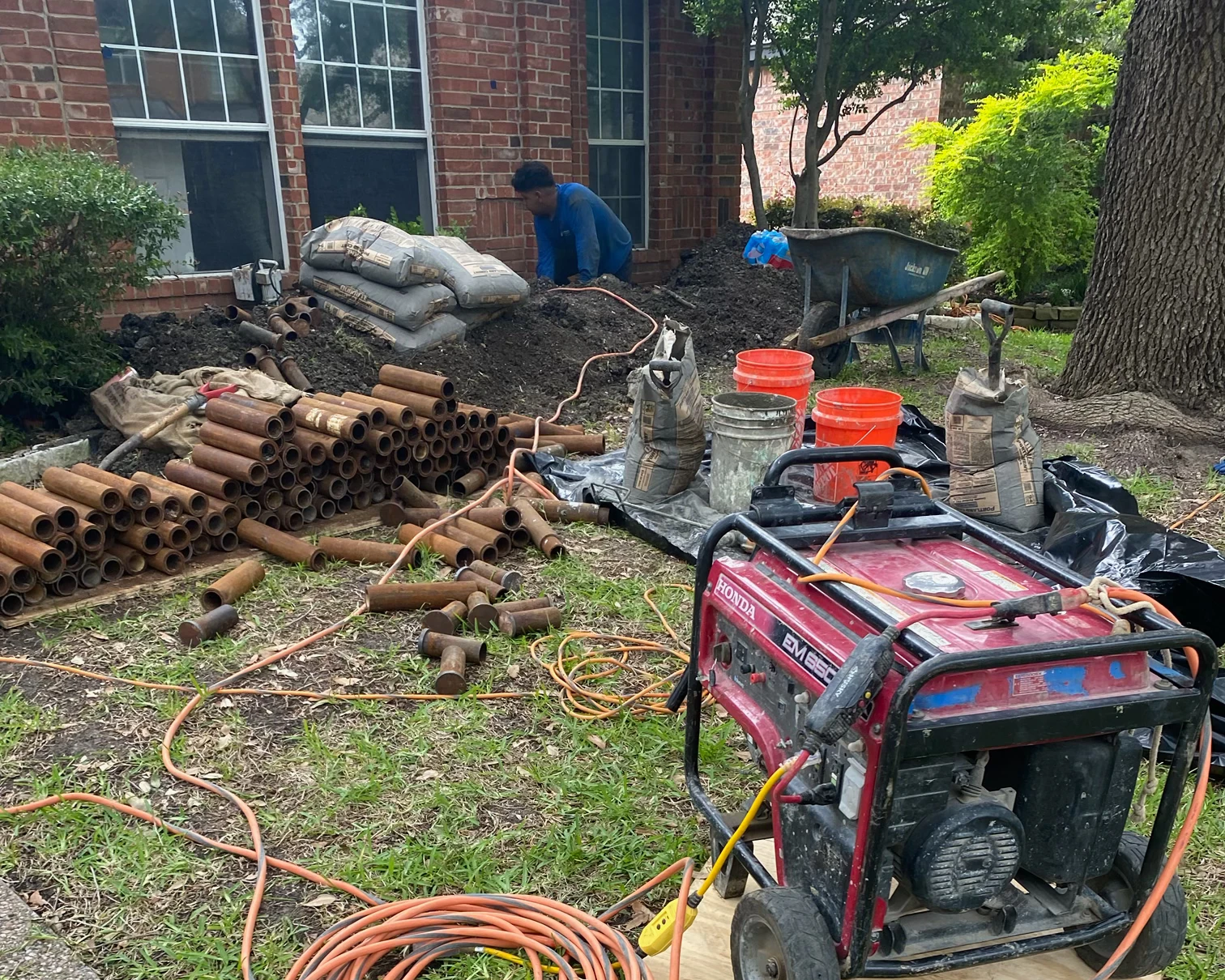One of the most common foundation problems in Texas is shifting. As the diverse Texas soil expands, contracts, or sinks, your home’s foundation may settle and move. This movement results in damage, not only to your foundation, but potentially to your home as well.
The highly elastic clay soil found throughout most of Texas combined with our extreme seasonal moisture fluctuations creates a unique challenge for home foundations. The soil in Texas varies from well-draining sand, expansive clay, cracking clays, and low strength soil. During rainy weather, the clay soil absorbs water like a sponge, causing it to expand significantly. These shifts under your foundation cause strain on the structure of your home. Most properties show evidence of settling long before significant structural damage occurs.
Other causes of foundation problems include poor drainage, extreme weather, plumbing leaks, and flooding. These conditions play a big role in a foundation’s structural integrity.
It’s crucial to act promptly if you recognize any warning signs as foundation repairs tend to cost less when addressed early.
Signs Your Home May Need Foundation Repair
Cracks in Floors
Hairline cracks in your floor are most likely from normal settling, but larger gaps are signs of serious foundation shifting. Also look for signs of ceramic tiles lifting or humps in wooden flooring.
Sinking Foundation
Check the perimeter of the foundation for vertical cracks and dips – warning signs of a sinking foundation. These can lead to much larger problems if left unrepaired.
Slab Cracks or Cracks in Concrete
Slab foundations function as both your foundation and ground floor. Shifting soil puts pressure on your slab, and can eventually cause concrete cracks or sunken concrete.
Interior Wall Cracks
It’s normal to notice hairline cracks along drywall ceilings and wall corners. Again, this is normal settling.
However, large or irregular wall gaps and cracks may be more serious. These jagged cracks are signs of a shifting foundation and need professional assessment.
Exterior Brick Cracks
Vertical brick cracks are a sign of uneven foundation settling. One side of the wall is often better supported than the other, causing strain and vertical cracks in the exterior brick.
Doors and Windows that Won’t Close Properly or Get Stuck
One of the most noticeable signs of foundation movement is when doors and windows don’t close or open properly. They might stick at the top or drag along the flooring, which indicates an uneven floor.
When a door is hung, it’s carefully squared with the doorframe. If just one window or door in your home is sticking, it may not be a foundation problem. However, if several of your windows or doors are sticking or seem out of alignment, you may need foundation repair.
Gaps Around Windows and Doors
Thin cracks or gaps can appear around windows and doors as a sign of foundation instability. You may see them around the frame of the door or where the wall meets the ceiling.
Countertops Pulling Away from Wall
Like floors, countertops also become warped and pull away from the wall when the foundation moves. The most noticeable area is behind the sink.
Foundation movement can also cause a countertop to separate from the backsplash.
Cabinets that Don’t Hang Properly
When your walls are not level, your cabinets show misalignment. They may become hard to close or keep closed.
A Leaning or Cracking Chimney
Your chimney is likely the heaviest portion of your home, as all its weight is concentrated in one location. If the soil under your house is causing the foundation to shift, the chimney bricks can crack, or the entire chimney can even start to lean.
Sloping or Sagging Floors
Houses are built to be level, so sloping floors are a visual indicator that the home’s position has shifted.
Sagging floors can be a sign of localized foundation problems. Unlike a sloping floor that often indicates a shift, sagging can be a result of damage to the girders, joists, or posts that support that area of the floor.
Mold and Mildew in Crawl Spaces
Mold and mildew in crawl spaces indicate that moisture is seeping in where it shouldn’t be. It can be a sign of shifting soil.
Act on Warning Signs Quickly
With expansive clay soil and wet-and-dry extremes, Texas homeowners face foundation challenges, but local engineers have developed unique foundation installations and repair techniques to combat these problems.
If you see any indication that your home may be shifting or settling, contact the radically honest experts at Pinnacle Foundation Repair immediately for a free evaluation. In 1 out of 3 cases, our inspection reveals no immediate work needs to be done.
Our foundation repair methods and services include:
Steel Pier: The steel pier foundation repair bears high loads by inserting steel piers up to 75 feet deep into the soil.
Steel Transition Pier: An economical option that offers stability using a mix of concrete and steel.
Mud Jacking: This highly effective foundation repair method restores the concrete foundation slab. Mud Jacking fills any voids in the soil and lifts the concrete slab to its original position. Drilled Pier: Also known as caisson, drilled pier foundation repair offers excellent stability in the expanding and contracting clay found in the Dallas-Fort Worth area.
Helical Pier: Eco-friendly and time-efficient, the helical pier foundation repair is suitable for residential and commercial properties.
Foundation repairs cost less the sooner you realize the problem. Homeowners who fail to address foundation issues often see a loss in their homes’ value. If you notice any of these warning signs, or suspect that your foundation may be shifting or settling, schedule a free professional inspection with the radically honest experts at Pinnacle Foundation Repair.

